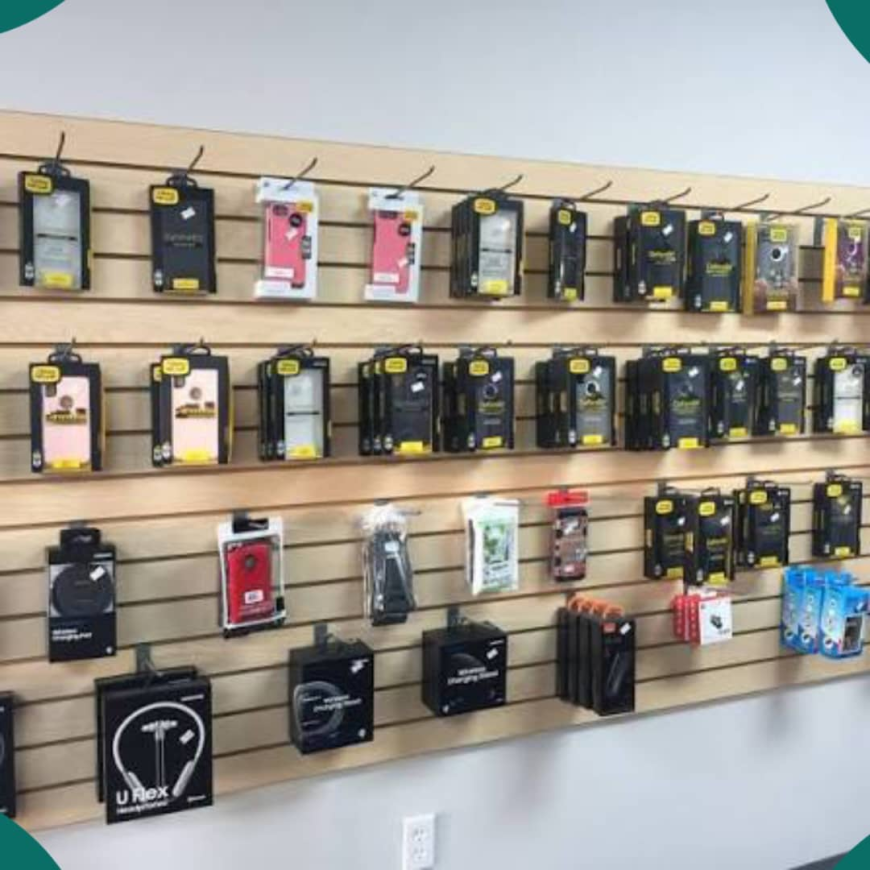How to Start a Profitable Phone Accessories Business in Nigeria (Step-by-Step Guide)
The phone accessories business in Nigeria offers high profitability with low startup costs, driven by the nation’s growing smartphone usage. By sourcing quality products, choosing strategic locations, and leveraging both offline and online sales channels, entrepreneurs can build a sustainable and successful venture in this fast-growing market.

Smartphones are no longer luxury items in Nigeria—they are daily essentials used for communication, work, entertainment, and learning. With millions of Nigerians purchasing and using smartphones, the need for phone accessories has skyrocketed. Accessories such as chargers, Bluetooth devices, screen protectors, and power banks are not only necessary but also frequently replaced. This continuous demand makes the phone accessories business a lucrative opportunity for aspiring entrepreneurs.
In this comprehensive guide, we will explore why the phone accessories business is highly profitable, the steps to starting one in Nigeria, common challenges you may face, and practical tips for long-term success.
Why the Phone Accessories Business is Profitable in Nigeria
- Massive Smartphone Penetration: Millions of Nigerians use smartphones, and the number is growing yearly, driving consistent demand for accessories.
- Repeat Purchases: Items like chargers, screen guards, and earpieces get damaged or worn out easily, ensuring repeat customers.
- Low Startup Costs: You can begin with as little as ₦100,000 to ₦500,000 and scale up as your business grows.
- Diverse Sales Channels: Phone accessories can be sold in physical shops, markets, roadside kiosks, or online via Jumia, Konga, WhatsApp, and Instagram.
- Wide Customer Base: Everyone with a smartphone is a potential customer, from students to professionals and businesses.
Step-by-Step Guide to Starting a Phone Accessories Business in Nigeria
1. Conduct Market Research
Understanding your target market is the first step. Identify which accessories are most in demand, such as fast chargers, Bluetooth headsets, or power banks. Study competitors in your area—observe their pricing, marketing style, and customer base. Research helps you make informed decisions about what to stock and where to sell.
2. Develop a Business Plan
A business plan is your roadmap. It should outline your startup costs, sales strategy, customer base, and financial projections. For example, if you are starting with ₦200,000, your plan should specify how much will go into stock, shop rental, marketing, and reserves. A clear plan keeps you focused and helps attract partners or investors.
3. Decide on Your Business Model
There are several ways to run a phone accessories business:
- Retailing: Sell directly to consumers through kiosks, shops, or roadside stalls.
- Wholesaling: Supply bulk quantities to smaller retailers (requires higher capital).
- Online Sales: Leverage e-commerce platforms like Jumia and Konga or promote through social media and WhatsApp Business.
Many successful entrepreneurs combine online and offline sales for maximum reach.
4. Register Your Business
Registering your business with the Corporate Affairs Commission (CAC) gives it credibility and builds customer trust. It also positions you for future expansion, partnerships, or even import opportunities.
5. Source Quality Products
Your reputation depends on the quality of your products. You can source accessories locally from major markets like Computer Village (Lagos), Alaba International Market, or Aba Market. For larger operations, consider importing from China via platforms such as Alibaba or 1688. Always test samples and work with trusted suppliers to avoid counterfeits.
6. Choose a Strategic Location
If selling offline, location is critical. Choose areas with high foot traffic, such as business districts, university environments, or transport hubs. For online sellers, focus on reliable delivery and customer service to build trust.
7. Market Your Business
Effective marketing will set your business apart. Use social media platforms to showcase products with pictures and videos, run promotions on WhatsApp, and encourage word-of-mouth referrals by offering excellent customer service. Consider offering discounts or bundle deals, such as a free screen protector with every phone case.
8. Manage Finances and Inventory
Financial discipline is crucial. Separate personal funds from business funds, keep detailed records of sales and expenses, and reinvest profits into growing your stock. Tools like Excel sheets or mobile bookkeeping apps can help you manage inventory efficiently.
Challenges to Expect
- High Competition: Many people are entering the phone accessories market, so you must stand out.
- Counterfeit Products: Fake accessories flood the market, and selling them can ruin your reputation.
- Price Fluctuations: Exchange rate instability can affect import prices and profit margins.
- Customer Complaints: Be prepared to handle returns and dissatisfied customers professionally.
Tips for Success
- Always sell genuine, high-quality products to build trust.
- Stay updated on market trends and stock trending accessories like wireless earbuds, magnetic chargers, or smartwatches.
- Offer variety in product selection to cater to different customer preferences and budgets.
- Provide after-sales services such as free installation of screen protectors.
- Network with suppliers and fellow traders to gain access to discounts and market insights.
Conclusion
Starting a phone accessories business in Nigeria is a smart and profitable decision. With high demand, low entry costs, and flexible sales options, this venture offers sustainable opportunities for both beginners and experienced entrepreneurs. By conducting proper research, sourcing quality products, choosing the right location, and adopting strong marketing practices, you can build a thriving business in this growing sector.























